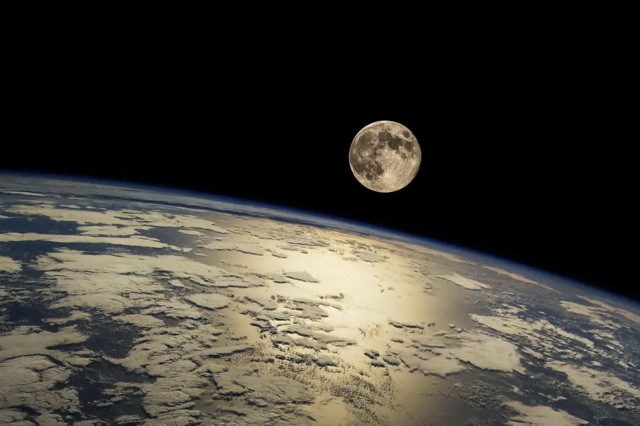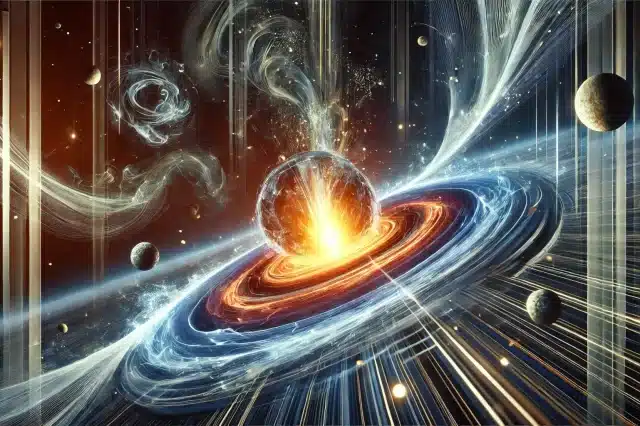Worrying.
What comes to mind first when you think about the end of times? Do you see humanity becoming extinct due to nuclear weapons and catastrophic wars? Like in Hollywood movies, will artificial intelligence take over and exterminate us all? According to scientists, there are 9 great threats to humanity’s future.
Or will global warming cause Earth to become inhospitable, leading to the planet’s extinction? This article brings you the nine most likely ways humanity could be wiped out, according to the Swedish non-profit Global Challenges Foundation.
9 Greatest Threats to Humanity’s Future
The Global Catastrophic Risks report is based on scientific data, research, and contributions from numerous academic experts. The goal is to create a deeper understanding of catastrophic risk and spark a discussion on how the management of such risks can be developed and improved.
“We fret about familiar risks – air crashes, carcinogens in food, low radiation, etc. They’re all intensely studied,” wrote Martin Rees, UK Astronomer Royal and co-founder of Cambridge’s Center for the Study of Existential Risk. So, what are the greatest threats?
Nuclear Warfare
Nuclear warfare is my number one spot when thinking about the greatest threats to humanity’s future. Although the probability of global nuclear warfare is estimated to be around 1 percent, even one nuclear weapon, detonation could annihilate 80 to 95 percent of the people living within a 4-kilometer radius of the impact zone. According to the report, the US and Russia currently hold the largest arsenals, controlling approximately 7,000 warheads each. Experts warn that nuclear explosions may cause a ‘nuclear winter’ in addition to their destructive effect at the point of impact.
Biological and Chemical Warfare
Biological and chemical warfare are listed as another threat to humankind. Unlike nuclear weapons, which require rare materials and complex engineering, these weapons can be developed at a comparatively low cost, according to the report.
Catastrophic Climate Change
Global temperature increases ranging from 1°C to 3°C would have severe consequences, potentially devastating environmental and human societies. Global climate models indicate that even in a <2°C scenario, the most intense tropical cyclones become more frequent and intense.
Ecological Collapse, one of the greatest threats?
Our planet’s ecosystems are the foundation for human life, performing various functions without which human societies and economies could not operate at their current level. If we continue pushing ecosystems beyond their tipping point, we could diminish our planet’s biodiversity, leading to lesser freshwater supplies and causing our agricultural capacity to plummet.
Pandemics
During the 5th and 14th centuries, plague epidemics spread internationally, killing approximately 15% of the global population over a few decades. The global spread of diseases can be extremely lethal and hard to control. The Antonine Plague outbreak from 165 to 180 lasted 15 years, killing an estimated 5 million people.
Asteroid Impact
Of the 9 greatest threats to humanity’s future, an asteroid impact is one of the most worrying. Around 65 million years ago, a 10km diameter asteroid struck Chicxulub in Mexico, causing one of the largest mass extinctions in our planet’s history, abruptly ending the dinosaurs’ reign. While such impacts are unlikely, they are not impossible. Large asteroids still exist in orbits near Earth, and the impact of an asteroid larger than 1 km would eject enough particles into the atmosphere to dim the sun for several months.
Supervolcanic Eruption
One of the most violent volcanic eruptions occurred about 74,000 years ago when the Toa supervolcano erupted. The eruption ejected billions of tonnes of dust and sulfates into the atmosphere. Experts estimate that it caused global cooling of 3-5°C for several years, leading to a devastating loss of plant and animal life. With our current technology and understanding of supervolcanoes, we cannot anticipate volcanic eruptions beyond a few weeks or months in advance.
Solar Engineering
Solar engineering aims to reflect light and heat from the sun into space using aerosols and other particles to cool down the planet. However, solar engineering only exists in computer models, and we don’t yet understand the risks or potential benefits very well. Such technology has the ability to destabilize local and global climates and could result in uncontrollable, “rapid and severe global warming.”
Artificial Intelligence, as one of the greatest threats?
Artificial intelligence has been on the rise for quite a few years. There is a high probability that these systems may surpass humans in broader domains in the coming decades. The danger of entities more intelligent than us can be understood by considering the power we humans have drawn from being the smartest creatures on the planet.
Check out this video for more
PLEASE READ: Have something to add? Visit Curiosmos on Facebook. Join the discussion in our mobile Telegram group. Also, follow us on Google News. Interesting in history, mysteries, and more? Visit Ancient Library’s Telegram group and become part of an exclusive group.





